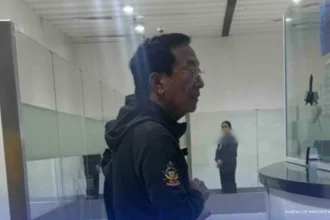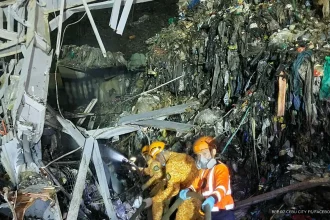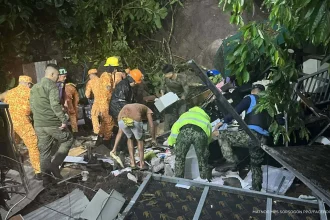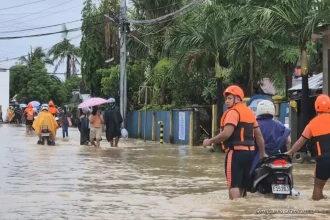
Metro Manila Philippines – The two-year shift to the previous academic calendar would have a minimal impact on improving student performance without addressing the root of the problem, an education expert said.
In an interview with NewsWatch Plus, University of the Philippines Associate Professor Lizamarie Olegario said long-term interventions are required such as improvements on school facilities.
“We need to actively address climate change concerns and make classrooms climate-resilient,” Olegario said.
Environmental groups have called on the government to build more climate-friendly school facilities. Olegario mentioned what authorities can do.
“Roofs can have insulators. Classrooms can have more ventilators. Some countries put solar panels on roofs and walls so that they will at the same time absorb the solar heat,” she said.
She said flooding in schools should also be addressed, with the Philippines encountering around 20 tropical cyclones every year.
“Some countries have built gigantic underground tunnels to minimize flooding. Some have flood control mechanisms. We need to consult and get creative architects, land planners, and engineers to solve the problem,” said Olegario.
The Department of Education said it is working on classroom designs that could withstand shifting weather.
“Iyong mga susunod na school building projects natin, sisiguraduhin natin na climate resilient iyan… And those na na-build na years ago at hindi pa climate resilient, we’ll have to retrofit and do some repairs para ma-improve iyong ating ventilation,” Education Deputy Spokesperson and Assistant Secretary Francis Bringas told NewsWatch Plus.
(Translation: In our next school building projects, we’ll make sure that these will be climate-resilient. And those classrooms that were built years ago and are not yet climate resilient, we’ll have to retrofit them and do some repairs to improve ventilation.)
According to the Basic Education Report released in January, over 3,600 classrooms were built in 2023, a little over half of the government’s target to put up 6,000 classrooms that year.
In the same report, Vice President and Education Secretary Sara Duterte said over 5,800 classrooms have been scheduled for repairs this year.
In May, the National Economic and Development Authority approved a P30.65-billion project that would rehabilitate classrooms damaged by typhoons and make them safe and resilient. This will be carried out from 2025 to 2029, and is expected to cover 1,200 schools.
Need to upskill teachers
Meanwhile, Olegario said there’s more to shifting school calendars in improving student performance.
President Ferdinand Marcos Jr. has approved a gradual shift in the school year whereby classes would open in July and end in April in 2024-2025, then June-March in 2025-2026.
Olegario pointed out reforms needed in classroom teaching and learning.
“I always say that seminar workshops are not enough to upskill the teachers. There’s a need to mentor them in action when they prepare their lessons based on readily available suggested lesson activities and when they implement the lessons in the classroom,” she said.
Olegario added the need for teachers to focus on their job and drop non-teaching functions.
“Schools need to have more admin support such as more counselors, discipline officers, and administrative officers working on other non-teaching roles given to the teachers,” she said.
In January, Duterte ordered the removal of administrative tasks from public school teachers and ‘bring them back’ to classrooms.
More to consider
Apart from building climate-friendly facilities and upskilling teachers, Olegario said the education sector should look into other factors to improve the learning process.
“We need to address malnutrition… be ready for emergencies in education and that includes not only heat waves but also, typhoons, not use the schools as evacuation centers, provide easy access to technology and internet service when there’s a need to have remote classes,” she said.
While DepEd has adapted blended learning since the pandemic, Olegario pointed out the “great digital divide” in the country.
She proposed establishing more libraries across barangays so that remote classes are more efficient.
“It is best that we develop flexibility in the mode of learning because the pandemic is not the first and not the only emergency that we will face in the future,” said Olegario.
In January, the DepEd launched its plan to pursue full digitization and interconnectivity in schools and its offices by 2028.
















